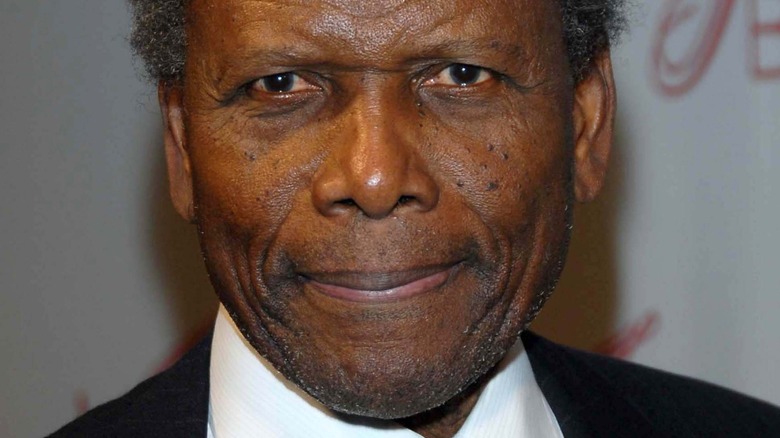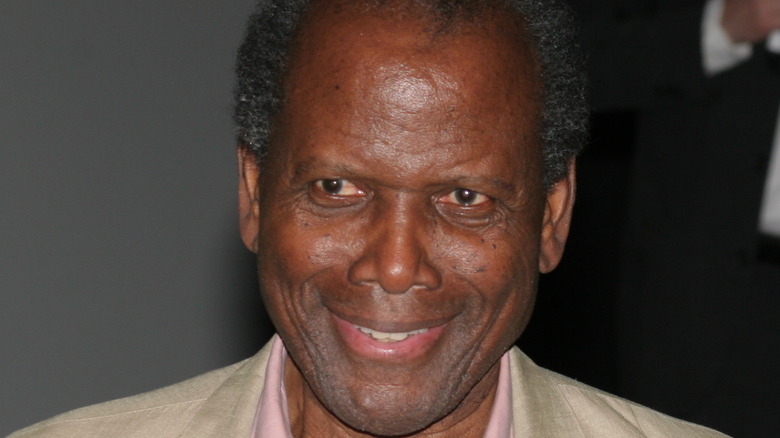What We Know About Sidney Poitier's Cause Of Death
Fans and celebrities alike were devastated when news broke about Sidney Poitier's tragic death on January 7. Poitier was a trailblazer in Hollywood, becoming the first Black man to win the Academy Award for Best Actor in 1964. He later became a civil rights activist, advocating for diversity on and off-screen, according to CNN. Additionally, alongside his friend, Harry Belafonte, Poitier helped organize the March on Washington and plan Martin Luther King Jr.'s memorial after his assassination.
Outside of his career, Poitier is survived by his wife, Joanna Shimkus, and five daughters — Anika and Sydney Tamiaa (with Shimkus) — and Beverly, Pamela, and Sherri ( with first wife Juanita Hardy). A week after Poitier's death, daughter Sidney posted a tribute on Instagram, writing, "There are no words for this. No real way to prepare for this. No prose beautiful enough, no speech eloquent enough to capture the essence of my dad." She added, "He quite literally changed the landscape for everyone who came after him."
Although an official cause of death was not immediately announced, those details are now confirmed.
Sidney Poitier died from multiple complications
Sidney Poitier died at his home in Beverly Hills from a combination of heart failure, Alzheimer's dementia, and prostate cancer, according to a death certificate obtained by TMZ on January 18. A biopsy and autopsy were not performed, the report stated.
Sidney Tamiaa, Poitier's daughter, alluded to her father's health struggles in her tribute. "In these last few years, his body grew weaker and his ability to communicate failed him but the goodness remained," she wrote on Instagram. "In fact it grew even greater. It radiated out of him through his eyes, his smile, through the tiniest gestures," she added of his last days, before explaining that she and her sister Anika would spend most of their time with him whenever they could.
Poitier was initially diagnosed with prostate cancer in his 60s but survived the disease after undergoing surgery. He once told Vanity Fair, "I was happiest making films, writing books, and surviving prostate cancer." It is unclear when his cancer returned, and his struggles with dementia were not publicly known.


